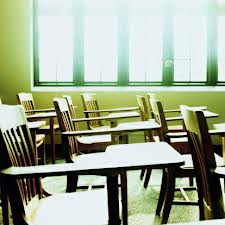Philly schools to get $39M boost in House-passed budget, yet want more

By Eric Boehm | PA Independent
The cash-strapped School District of Philadelphia would receive a modest increase in state funding next year under the provisions of a budget bill approved this week by the state House.
The Republican-crafted budget attempts to close a $1.4 billion deficit without raising taxes. That means most items in the budget are getting flat-funded, but basic education is one of the few areas where there are modest increases. The budget would increase education funding by about $300 million across all 500 of the state’s school districts, which works out to about a 3.5 percent increase over last year.
PHILLY SCHOOLS: The school district won’t get as much help from the state as it wants, but is also looking to the city and its teachers’ union to close a $440 million deficit
Those numbers take into account all areas of state spending on K-12 education, including not only the basic education subsidy but also state subsidies to help defray the cost of bussing, new construction and — most importantly — pension costs.
Philadelphia, by far the state’s largest school district in terms of students and expenditures, will get a funding increase of $39 million, about 2.9 percent above the current year, in the House-passed budget.
That’s far short of the $96 million the district says it needs from the state and city government to make ends meet as it deals with a $440 million deficit.
The budget tries to help the district, but times are tough for everyone right now, said Michael Stoll, spokesman for state Rep. Bill Adolph, R-Delaware, the chairman of the House Appropriations Committee.
“They are getting an increase in several line items, getting an increase in basic education,” Stoll said. “There are still conversations ongoing about the final numbers.”
Philadelphia schools have received increases in state funding every year under Gov. Tom Corbett, but expenses — primarily driven by debt service payments and retirement costs — have simply outpaced the growth in revenue.
For example, annual pension costs paid by the school district have jumped by nearly $100 million in just four years, and bigger increases are likely to come over the next five years.
In trying to deal with the funding mess, the school district laid off about 3,800 employees during the summer and closed 24 school buildings at the recommendation of the School Reform Commission, which cited the district’s declining student enrollment for the decision.
Democrats, who voted unanimously against the budget bill in the state House, have made education spending a top priority and would like to impose higher taxes on natural gas drilling companies to boost school districts’ subsidies.
“This budget is more of the same. It is full of missed opportunities. It is full of poor choices,” said state Rep. Joe Markosek, D-Allegheny, minority chairman of the House Appropriations Committee, on Wednesday.
But Republicans countered that school districts across the state need to make their own choices about how to control spending.
“It will never be enough for them, as long as they keep negotiating automatic increases for pay and benefits,” said state Rep. Rick Saccone, R-Allegheny.
In Philadelphia, the district has asked its teachers union to help with the tough budget situation by agreeing to a new contract with $95 million in concessions. The union has, so far, not done so.
Boehm can be reached at Eric@PAIndependent.com and follow @PAIndependent on Twitter for more.







